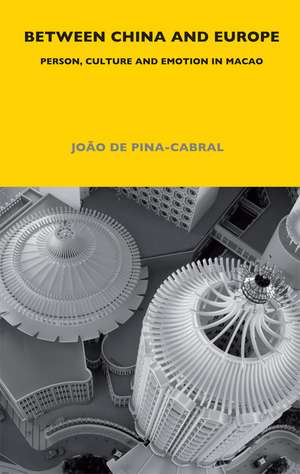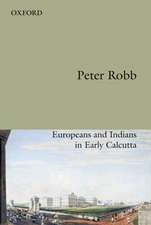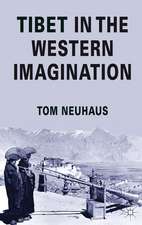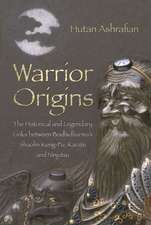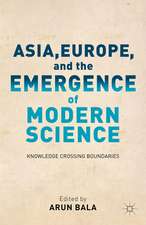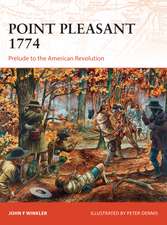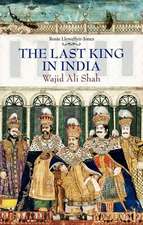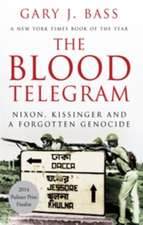Between China and Europe: Person, Culture and Emotion in Macao: LSE Monographs on Social Anthropology
Autor João de Pina-Cabralen Limba Engleză Paperback – iun 2005
| Toate formatele și edițiile | Preț | Express |
|---|---|---|
| Paperback (1) | 234.90 lei 6-8 săpt. | |
| Taylor & Francis – iun 2005 | 234.90 lei 6-8 săpt. | |
| Hardback (1) | 764.30 lei 6-8 săpt. | |
| Taylor & Francis – iun 2005 | 764.30 lei 6-8 săpt. |
Din seria LSE Monographs on Social Anthropology
-
 Preț: 310.01 lei
Preț: 310.01 lei -
 Preț: 104.90 lei
Preț: 104.90 lei -
 Preț: 230.87 lei
Preț: 230.87 lei -
 Preț: 391.40 lei
Preț: 391.40 lei - 18%
 Preț: 703.93 lei
Preț: 703.93 lei - 16%
 Preț: 234.90 lei
Preț: 234.90 lei - 17%
 Preț: 190.88 lei
Preț: 190.88 lei -
 Preț: 380.03 lei
Preț: 380.03 lei -
 Preț: 385.80 lei
Preț: 385.80 lei -
 Preț: 345.71 lei
Preț: 345.71 lei - 18%
 Preț: 706.28 lei
Preț: 706.28 lei - 25%
 Preț: 766.73 lei
Preț: 766.73 lei -
 Preț: 382.36 lei
Preț: 382.36 lei - 18%
 Preț: 963.52 lei
Preț: 963.52 lei -
 Preț: 388.68 lei
Preț: 388.68 lei -
 Preț: 385.58 lei
Preț: 385.58 lei -
 Preț: 387.75 lei
Preț: 387.75 lei - 15%
 Preț: 644.88 lei
Preț: 644.88 lei -
 Preț: 347.80 lei
Preț: 347.80 lei -
 Preț: 348.83 lei
Preț: 348.83 lei - 18%
 Preț: 788.25 lei
Preț: 788.25 lei - 19%
 Preț: 214.06 lei
Preț: 214.06 lei - 17%
 Preț: 214.75 lei
Preț: 214.75 lei - 18%
 Preț: 943.62 lei
Preț: 943.62 lei - 25%
 Preț: 600.01 lei
Preț: 600.01 lei -
 Preț: 340.17 lei
Preț: 340.17 lei -
 Preț: 382.54 lei
Preț: 382.54 lei -
 Preț: 387.91 lei
Preț: 387.91 lei -
 Preț: 390.41 lei
Preț: 390.41 lei -
 Preț: 349.05 lei
Preț: 349.05 lei -
 Preț: 389.66 lei
Preț: 389.66 lei -
 Preț: 284.78 lei
Preț: 284.78 lei -
 Preț: 388.30 lei
Preț: 388.30 lei -
 Preț: 394.87 lei
Preț: 394.87 lei -
 Preț: 345.89 lei
Preț: 345.89 lei -
 Preț: 353.40 lei
Preț: 353.40 lei -
 Preț: 350.48 lei
Preț: 350.48 lei - 18%
 Preț: 794.51 lei
Preț: 794.51 lei -
 Preț: 387.08 lei
Preț: 387.08 lei
Preț: 234.90 lei
Preț vechi: 281.27 lei
-16% Nou
Puncte Express: 352
Preț estimativ în valută:
44.95€ • 46.84$ • 37.22£
44.95€ • 46.84$ • 37.22£
Carte tipărită la comandă
Livrare economică 03-17 aprilie
Preluare comenzi: 021 569.72.76
Specificații
ISBN-13: 9780826457493
ISBN-10: 0826457495
Pagini: 256
Dimensiuni: 138 x 216 x 14 mm
Greutate: 0.45 kg
Ediția:1
Editura: Taylor & Francis
Colecția Routledge
Seria LSE Monographs on Social Anthropology
Locul publicării:Oxford, United Kingdom
ISBN-10: 0826457495
Pagini: 256
Dimensiuni: 138 x 216 x 14 mm
Greutate: 0.45 kg
Ediția:1
Editura: Taylor & Francis
Colecția Routledge
Seria LSE Monographs on Social Anthropology
Locul publicării:Oxford, United Kingdom
Cuprins
Chapter 1: MACAO BAMBOO 1 Periods in the city's history 4 The incidentes - instability and permanence 6 About this book 17 Chapter 2: THE CITY'S PROFILE 21 The historical origins of Macao's ethnic composition 21 People in motion 23 The population of Macao in the transition period 26 Main economic activities 28 Broad lines of cultural differentiation 32 Broad ethnic categories 36 Conclusion 48 Chapter 3: HOLLERING IN BRONZE: MEMORY AND CONFLICT 51 The hoppo and 'Macao's subjection' 54 The Governor's impossible task 60 A new modus vivendi The colonial periodA martyr and a hero Mesquita during the Cultural Revolution Some guy on a horseConclusion Chapter 4: PARADOXES: GAMBLING AND THE IMPERIAL CIVIL SERVICE EXAMINATION Gambling monopolies in MacaoPopular gambling gamesThe vaeseng lotteryThe history of the gambling syndicatesThe examination paradox; Conclusion: the three paradoxes Chapter 5: EQUIVOCAL COMPATIBILITIES: PERSON, CULTURE AND EMOTION A confrontation of hegemonies A critique of the isomorphic model of social reproductionThe court case; Macao's legal systemSlavery in MacaoThe trade in persons in MacaoThe Chinese concept of personConclusion Chapter 6: STONE SILENCES: ORGANIZED AMNESIAA non-existent monumentSilences and identitiesAmbiguous belongingsZhou Enlai' s responseA third silenceA Christian coda Chapter 7: NAMES: PERSONAL IDENTITY AND ETHNIC AMBIGUITYEthnicity and the person Naming systemsInterethnic namingConclusion 156 Chapter 8: CORRELATE ASYMMETRIES: GENDER, CLASS AND ETHNICITY 159 The matrimonial context of production 160 The asymmetry in interethnic sexual relations 165 The matrimonial context of reproduction 168 The caesura of the 1970s: marriage patterns 171 The caesura of the 1970s: domestic environment 174 Conclusion: correlate asymmetries 176 Chapter 9: HABITS OF THE HEART: MODERN WOMEN AND FILIAL PIETY 179 Marriage property transfers 181 Matrimonial insecurity 185 Working women 190 Filial daughters 192 Diverging devolution 195Conclusion 200 Chapter 10: TRIAD WARS AND THE END OF PORTUGUESE ADMINISTRATION 205 Outlaws of the marsh 208 A synopsis of the Triad Wars 213 The Triad Wars as an incidente 218 Conclusion 220
Notă biografică
Joao de Pina-Cabral is Senior Research Fellow and Chairman of the Scientific Board at the Institute of Social Sciences of the University of Lisbon, Portugal.
Descriere
From the mid-1500s to December 1999, Macao was the longest-standing site of economic, religious and political contact between the Chinese and European worlds.
